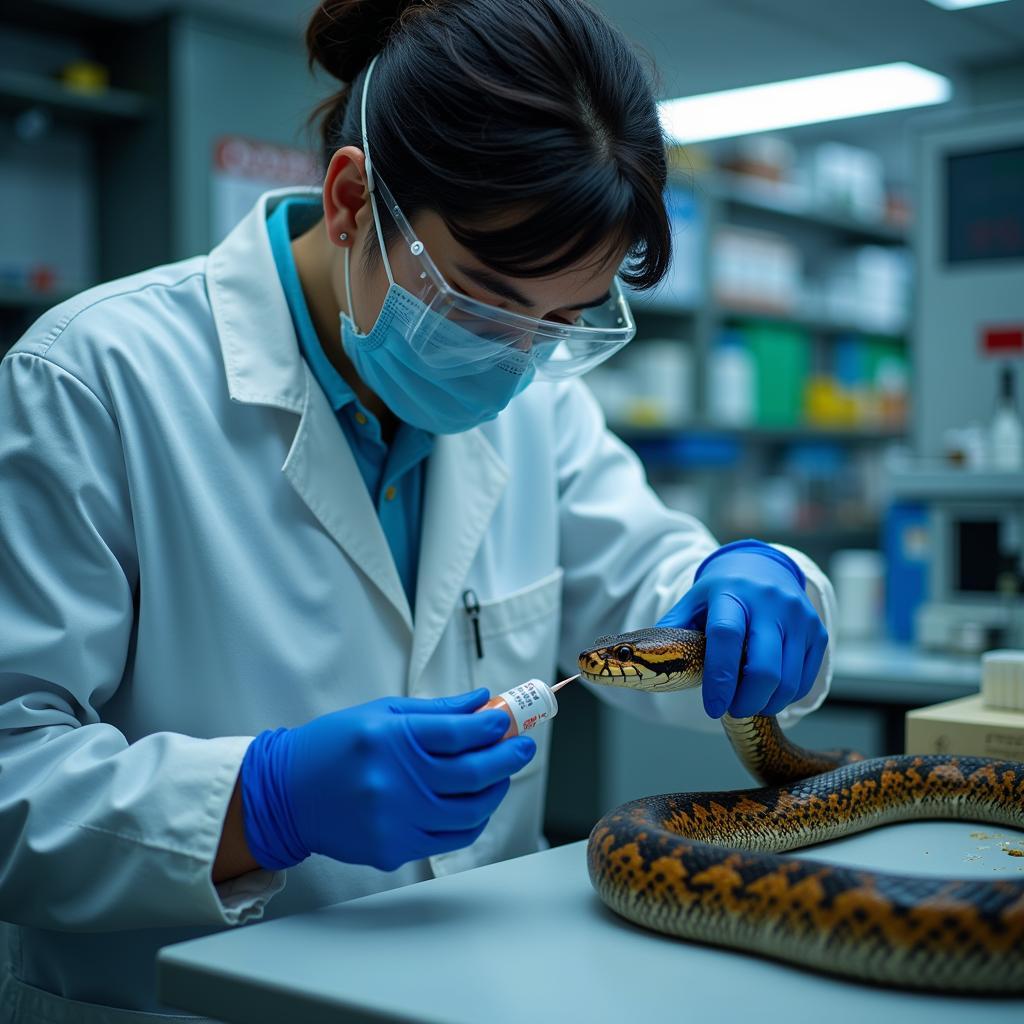Venom Research Centres are hubs of scientific exploration, dedicated to understanding the complex nature of venoms and their potential applications. These centres play a crucial role in not only uncovering the dangers of venomous creatures but also in harnessing the power of their toxins for the benefit of humankind. From developing life-saving antivenoms to pioneering new drugs, the work conducted within these facilities has far-reaching implications for medicine, pharmacology, and our understanding of the natural world.
Inside the Venom Research Centre: A Glimpse into the World of Toxins
Venom research centres are equipped with state-of-the-art technology and house a diverse team of experts, including toxinologists, biochemists, pharmacologists, and clinicians. These professionals work collaboratively to investigate various aspects of venom, from its molecular composition and mechanism of action to its potential therapeutic uses. Within these centres, researchers meticulously extract venom from a wide range of venomous creatures, including snakes, spiders, scorpions, and cone snails, adhering to strict safety protocols. The extracted venom is then subjected to rigorous analysis, utilizing techniques such as chromatography, mass spectrometry, and molecular cloning to identify and characterize its individual components.
 Venom Extraction Process in a Research Centre
Venom Extraction Process in a Research Centre
One of the primary focuses of venom research centres is the development of antivenoms. Antivenoms are life-saving treatments for envenomation, neutralizing the toxic effects of venom and preventing potentially fatal complications. Researchers develop antivenoms by injecting small amounts of venom into animals, such as horses or sheep, stimulating their immune systems to produce antibodies against the venom’s toxins. These antibodies are then extracted, purified, and formulated into antivenom, ready to be administered to envenomated patients.
The Power of Venom: From Toxin to Therapy
Beyond antivenom development, venom research centres are also at the forefront of drug discovery. Venomous creatures have evolved a remarkable arsenal of toxins that target specific physiological processes, making them promising candidates for the development of new drugs. Researchers are exploring the potential of venom-derived compounds to treat a wide range of diseases, including cancer, cardiovascular disease, neurological disorders, and chronic pain. For instance, certain snake venoms contain peptides that block blood clotting, which has led to the development of anticoagulant drugs used to prevent heart attacks and strokes.
“Venom research is a fascinating field that holds immense potential for medical advancement,” says Dr. Emily Carter, a leading toxinologist at the Venom Research Institute. “By understanding the intricate workings of venom, we can unlock its therapeutic potential and develop novel treatments for some of the most challenging diseases facing humanity.”
The Future of Venom Research: Unlocking New Possibilities
The future of venom research is bright, with ongoing advancements in technology and a growing understanding of venom’s complexity. Researchers are constantly discovering new toxins with unique properties, opening up exciting avenues for drug discovery and therapeutic development. Furthermore, the application of genomics and proteomics is providing unprecedented insights into the evolution and function of venom, paving the way for more targeted and effective treatments.
“The field of venom research is constantly evolving,” adds Dr. David Miller, a renowned biochemist specializing in venom peptides. “With each new discovery, we gain a deeper appreciation for the power of nature’s toxins and their potential to revolutionize medicine.”
Conclusion: The Vital Role of Venom Research Centres
Venom research centres are vital in our quest to understand and harness the power of nature’s toxins. From developing life-saving antivenoms to pioneering new drugs, the work conducted within these facilities has a profound impact on human health and our understanding of the natural world. As research continues, we can expect even more groundbreaking discoveries that will further unlock the therapeutic potential of venom.
FAQ
-
What is a venom research centre? A venom research centre is a specialized facility dedicated to studying the properties and potential applications of venom from various creatures.
-
How is venom extracted? Venom is carefully extracted from venomous animals using specialized techniques and equipment, with strict adherence to safety protocols.
-
What are the main uses of venom research? Venom research is primarily focused on developing antivenoms and exploring the therapeutic potential of venom-derived compounds for drug discovery.
-
What types of diseases can venom-based drugs treat? Venom-based drugs have shown promise in treating various conditions, including cancer, cardiovascular disease, neurological disorders, and chronic pain.
-
What is the future of venom research? The future of venom research looks promising, with ongoing advancements in technology and a deeper understanding of venom’s complexity, leading to new discoveries and therapeutic applications.
-
How can I learn more about venom research? Contact us for more information: Phone: 0904826292, Email: research@gmail.com, Address: No. 31, Alley 142/7, P. Phú Viên, Bồ Đề, Long Biên, Hà Nội, Việt Nam. Our team is available 24/7 to answer your questions.
-
Are there any career opportunities in venom research? Yes, venom research offers diverse career paths for scientists, researchers, and other professionals interested in this fascinating field.
Need support? Contact us: Phone: 0904826292, Email: research@gmail.com Or visit us at: No. 31, Alley 142/7, P. Phú Viên, Bồ Đề, Long Biên, Hà Nội, Việt Nam. We have a 24/7 customer support team.